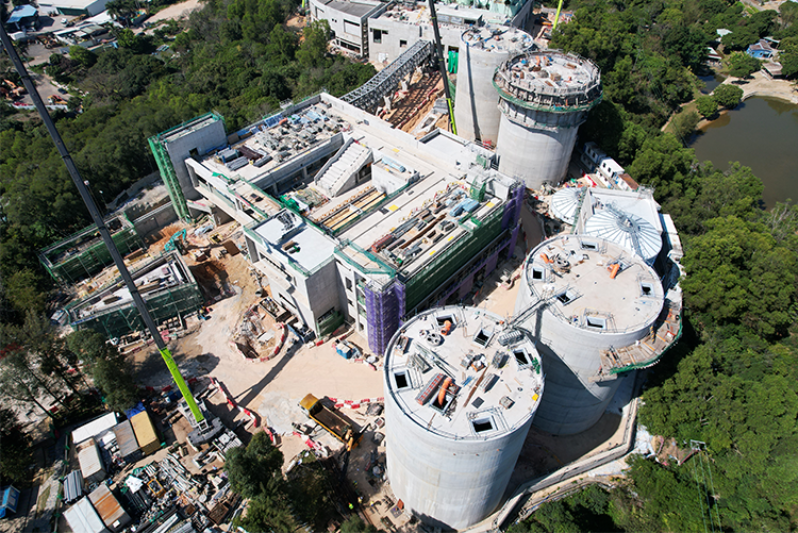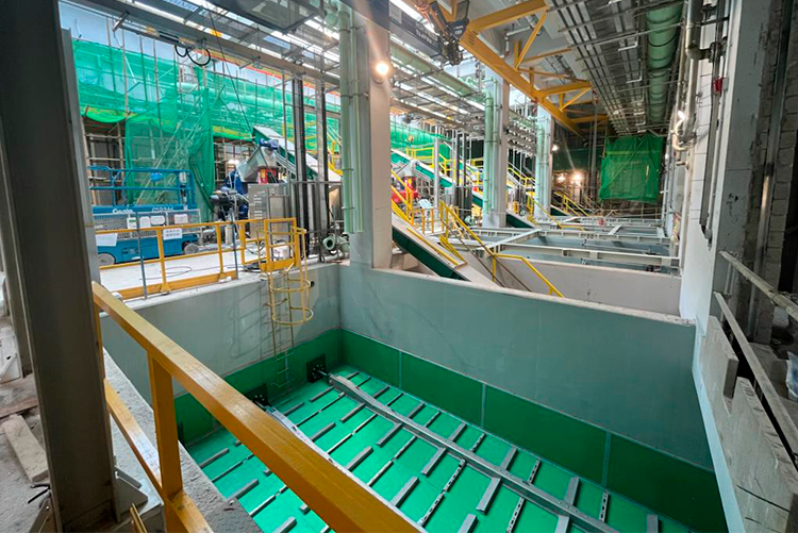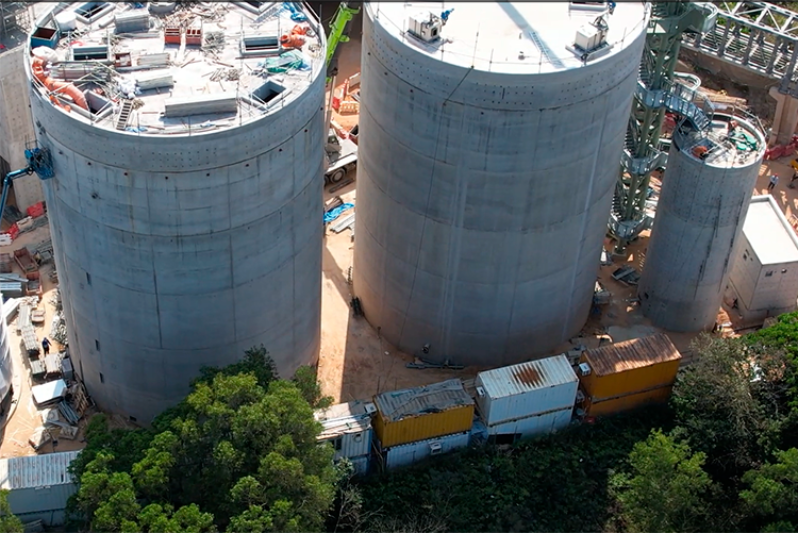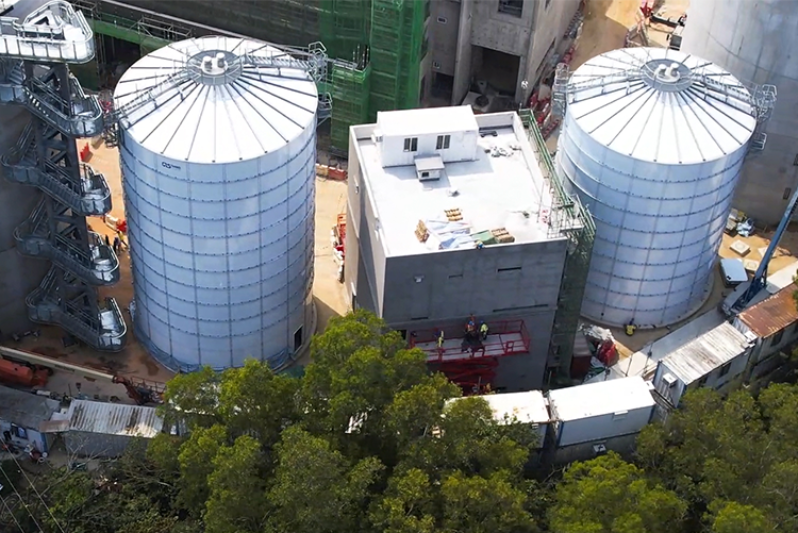Key Facts
Project: Anaerobic Digestion food waste plant
Client: Environmental Protection Department (EPD)
Location: Sha Ling, Hong Kong
Facility footprint: 2.5 hectares
Purpose: Design and build
Cost: £225m (HKD 2.1 bn)
Contract type: EPC
Output: Gross output 45 GWh of electricity
O Park 2 food waste anaerobic digestion plant Hong Kong
Agrivert | OPARK2 Hong Kong
VIEW PDF CASE STUDY HERE
Introduction
Agrivert is the lead joint venture partner contracted to the Government of the Hong Kong Special Administrative Region to design, build and operate a food waste Anaerobic Digestion facility known as O·PARK2. One of the world’s most significant investments for an organic waste treatment facility, O.PARK2 will receive and process 300 tonnes of food waste per day. In addition, the facility will produce over 45 GWh of electricity annually by capturing the methane contained in waste food. The development site is located on 2.5 hectares near Sha Ling, in Hong Kong’s northernmost district.
The development is on target to move into operations in late 2023. The project is undertaken through a Joint Venture between Agrivert and two well-established Hong Kong engineering companies, Alchmex and Jardine Engineering Corporation (JEC).

Challenges
Hong Kong’s landfills are being filled at an alarming rate. The city produces 5.67 million tonnes per year of municipal solid waste (MSW), of which food waste has been identified as a significant contributor. Only one-third of the waste is recycled, resulting in significant amounts deposited into Hong Kong’s three large landfills. It is predicted that by the late 2020s, these landfills will be full.
Hong Kong is one of Asia’s most densely populated regions, with over 7,000,000 people living on just 1,106 square kilometres. The territory’s rapid population and economic growth, coupled with limited waste treatment infrastructure, have resulted in the need for a new approach to waste disposal.
The Environmental Protection Department (EPD), a department of the Government of Hong Kong, set out a policy for the management of MSW. These policies establish a long-term goal to move away from landfill by establishing sufficient waste-to-energy facilities to process the current and growing waste demand.
Solution
EPD tendered for contractors to design and build an organic waste treatment facility that can treat 300 tonnes of organic waste daily through Anaerobic Digestion and operate that facility for 15 years before handing it back to the government.
The facility will include the following:
• Waste reception and waste pre-treatment system
• Anaerobic digesters
• Process to dewater the resultant digestate into a solid and liquid fraction
• Process to turn the solid fraction into a granulate fertiliser
• Wastewater treatment plant
• Centralised air pollution control
• Biogas production and conditioning
• Heat and power cogeneration plant
Once finished, O·PARK2 will operate 24/7 and be available for waste deliveries seven days a week.
The facility has been designed to be energy efficient, minimise energy consumption and export surplus energy to the public electricity grid. The combined heat and power (CHP) units will use the biogas generated by the Anaerobic Digestion process to generate heat for process use and electricity to power the facility. As the quantity and quality of food waste deliveries are expected to vary, the treatment processes will be designed to treat changing volumes and rates of organic waste.
The residue from the Anaerobic Digestion process will be converted into solid, granulate fertiliser as a by-product for landscaping and agricultural application.
O·PARK2 has been designed to blend harmoniously with the surroundings. It is important that the facility produces the least visual impact on nearby communities.
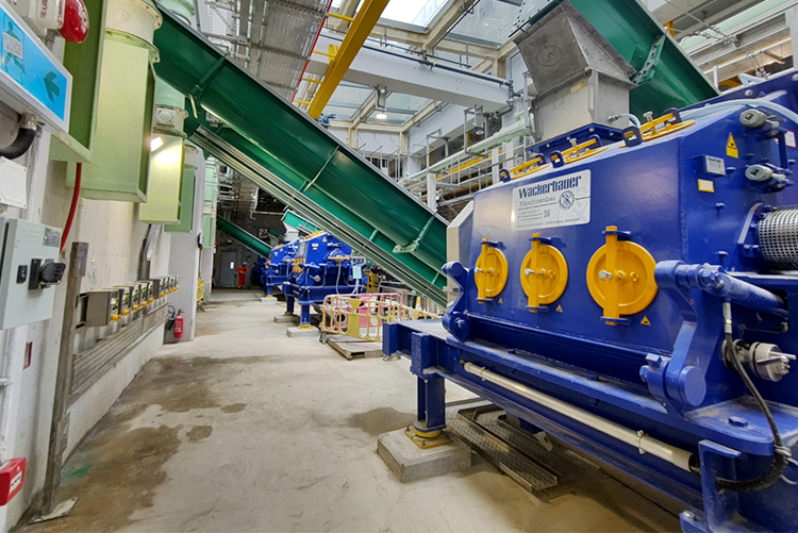
Client
Established in 1986, the Environmental Protection Department (EPD) is a government department responsible for environmental issues in Hong Kong. EPD is responsible for developing policies covering environmental protection and nature conservation; enforcing environmental legislation; monitoring environmental quality; providing collection, transfer, treatment and disposal facilities for many types of waste; advising on the environmental implications of town planning and new policies; handling pollution complaints and incidents; and raising awareness and support in the community for environmental initiatives.
Expertise
Agrivert has partnered with Hong Kong-based specialists, Alchmex and JEC to deliver this complex project through a Joint Venture structure, which Agrivert leads.
Agrivert
Agrivert has primary responsibility for the design of the whole process plant and is the principal designer for the waste reception building, anaerobic digestion systems and fertiliser production through granulation. In addition, Agrivert will provide operational expertise and oversight for 15 years once the construction and commissioning are complete.
With nearly 30 years of experience, Agrivert is widely recognised as a leader in engineering and operating organic waste treatment and renewable energy infrastructures that offer high efficiency, operability, and robustness. Agrivert designs, builds, operates and maintains best-in-class, award-winning infrastructure and provides advanced technical services to monitor and optimise assets, maximising efficiency and minimising downtime.
Alchmex
Alchmex International Construction Limited is a wholly owned subsidiary of China State Construction Engineering (Hong Kong) Limited, one of Asia's leading and largest civil engineering and building contractors.
Jardine Engineering Corporation (JEC)
Jardine Engineering Corporation Limited is a member of the Jardine Matheson Group. JEC has substantial experience in wastewater treatment and other electrical & mechanical processes in Hong Kong and, more broadly, across the Asia Pacific region, where it employs more than 4,000 people.
